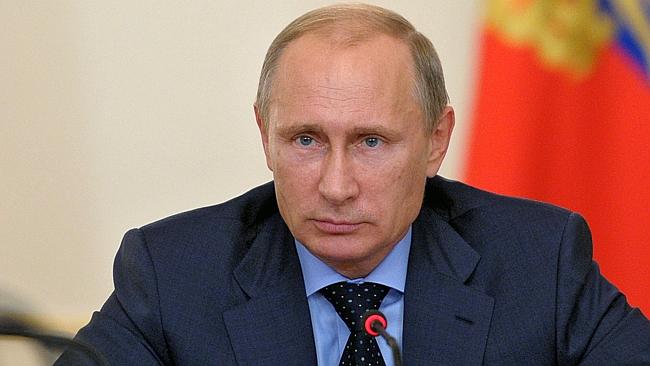International News
France Passes Bill Allowing Remote Phone Surveillance

The French government has successfully passed a bill that grants police authorities the ability to conduct remote surveillance on individuals by activating various features of their mobile phones, including cameras, microphones, and GPS.
This bill extends the scope of geolocation tracking to cover suspects of criminal activities, encompassing additional devices such as laptops, vehicles, and connected devices.
The surveillance measures outlined in the bill also enable law enforcement agencies to remotely activate recording functionalities to capture audio and visual evidence related to suspected cases of terrorism, organized crime, and delinquency.
However, the inclusion of these surveillance provisions within the broader “justice reform bill” has sparked criticism from both the political left and rights advocates, who argue that it represents an overreach of state power and an encroachment on individual privacy rights.
Detractors of the bill have labeled it as an authoritarian “snoopers’ charter,” expressing concerns about potential abuses and violations of civil liberties.
The provisions outlined in the surveillance bill passed have raised significant concerns regarding the potential infringement of fundamental liberties, according to La Quadrature du Net, a prominent advocacy group promoting digital rights and freedoms.
The group has specifically pointed out that these provisions pose a threat to the rights of security, privacy, private correspondence, and freedom of movement.
They have criticized the proposal as a step towards an overly heavy-handed approach to security.
But lawmakers agreed to the bill late Wednesday as Justice Minister Eric Dupond-Moretti insisted the bill would affect only “dozens of cases a year.”
During the parliamentary debate on Wednesday, lawmakers aligned with President Emmanuel Macron introduced an amendment to the surveillance bill, which seeks to restrict the use of remote spying to specific circumstances.
According to the amendment, remote surveillance would only be permitted when deemed necessary due to the nature and severity of the crime at hand, and the duration of such surveillance would be strictly proportional to the situation.
Additionally, the provision requires judicial approval for its implementation, with the total duration of surveillance limited to a maximum of six months.
Furthermore, the amendment explicitly excludes certain professions from being legitimate targets of remote spying. Individuals in sensitive roles, including doctors, journalists, lawyers, judges, and members of parliament, would be protected under the revised legislation.
Last month, the French Senate granted approval to a provision within the justice bill, which grants law enforcement authorities the ability to covertly activate cameras and microphones on devices belonging to suspects.
This provision represents an expansion of France’s surveillance capabilities, which have been steadily increasing since the wave of terrorist attacks in 2015.
The bill, commonly referred to as the “Keeper of the Seal” bill, has drawn comparisons to the controversial U.S. Patriot Act due to its perceived similarities in terms of surveillance powers.
International News
Gabonese Voters Head To Polls In First Presidential Election Since 2023 Coup
Gabonese citizens lined up at polling stations on Saturday to cast their votes in a landmark presidential election, the first since the military ousted the Bongo dynasty in a coup last August.
Eight candidates are vying for the top job, but all signs point to junta leader General Brice Oligui Nguema — the man behind the August 30, 2023, coup — emerging as the frontrunner.
Oligui, who toppled Ali Bongo and ended 55 years of family rule widely criticized for corruption and economic mismanagement, has dominated opinion polls in the run-up to the vote.
In the capital, Libreville, snaking queues formed outside polling stations as voters turned out early.
READ MORE: Gabon Extends Investment Offer To Dangote Amid Nigerian Attacks
Among them was 30-year-old Aurele Ossantanga Mouila, who cast his ballot for the first time after finishing a night shift at a casino.
“I did not have confidence in the earlier regime,” Mouila told reporters, echoing the sentiments of many young voters hoping for change in the oil-rich central African nation.
Oligui, who served as transitional president while civilians drafted a new constitution, swapped his military uniform for campaign attire as he seeks a seven-year mandate.
He faces seven challengers, including his main rival, former Prime Minister Alain-Claude Bilie By Nze, a longtime insider under Ali Bongo who now brands himself as the face of a “complete rupture” from the past.
Despite Oligui’s promises of reform, critics question his commitment to breaking with the old system, noting his deep ties to the Bongo era.
His campaign slogan, “C’BON” — a clever wordplay blending his initials with the French phrase for “It’s good” — has been plastered across Libreville, while rival candidates struggle for visibility.
As roughly 920,000 registered voters cast their ballots, the election is taking place against a backdrop of pressing national issues.
High unemployment, failing infrastructure, regular power outages, and soaring government debt — projected to reach 80 percent of GDP this year — have fueled public frustration.
Analysts, like political observer Neyer Kenga, say the vote represents a critical test for Gabon’s return to civilian rule and constitutional order.
“Today all Gabonese are firmly in favour of a democratic game that is played within the rules,” Kenga noted, adding that the outcome remains uncertain in a nation scarred by post-election violence in 2009 and 2016, as well as last year’s coup.
The interior ministry has pledged a “transparent ballot” and results are expected by Monday. Meanwhile, Oligui remains confident of victory.
“The builder is here, the special candidate, the one you called,” he declared at his final rally, as music and dancing filled the streets of Libreville.
International News
US Missionary Abducted During Church Service In South Africa
A US missionary was kidnapped at gunpoint while leading a prayer service at a church in the coastal city of Gqeberha, South Africa, on Thursday evening.
Pastor Josh Sullivan, 45, was taken by four armed and masked men who stormed the Fellowship Baptist Church in Motherwell during his sermon, authorities reported on Friday.
The attackers, who reportedly robbed two cell phones before abducting Sullivan, left the church in a vehicle with the pastor.
SEE ALSO: Gunmen Kidnap Navy Officer, Two Others In Abuja
“They knew him by name,” said Reverend Jeremy Hall, a fellow pastor in the area. “They took him at gunpoint and forced him into his car.”
The abduction took place as Sullivan was hosting a prayer meeting attended by around 30 people, including his wife and six children.
The vehicle was later found abandoned approximately 1.5 kilometers from the church.
Police are investigating the possibility that the kidnapping was motivated by financial gain, with suspicions of ransom demands.
Kidnapping for ransom has been on the rise in South Africa, with criminal gangs increasingly targeting individuals who can bring in large sums of money.
Hall, who is also based in Gqeberha, suggested the incident was likely “financially related,” further adding to concerns about the growing threat of organized crime in the region.
This follows another kidnapping in the same area earlier this week, involving a Chinese national.
Statistics from South African authorities show a disturbing trend, with over 17,000 kidnappings reported during the 2023/2024 financial year — an 11 percent increase from the previous year.
Sullivan, along with his wife and children, moved to South Africa from Tennessee in November 2018 to engage in missionary work.
Investigations are ongoing, and no arrests have been made at this time.
International News
Trade War: China Strikes Back Wth 125% Tariffs On U.S. Goods
In a sharp escalation of the ongoing trade war, China announced it will impose tariffs of up to 125% on U.S. imports starting Saturday, in response to President Donald Trump’s recent decision to raise duties on Chinese goods to 145%.
The tit-for-tat tariff hikes have heightened fears of a prolonged standoff between the world’s two largest economies, with analysts warning of potential disruptions to global supply chains.
The White House had recently intensified pressure on China by excluding it from a 90-day tariff pause granted to dozens of other countries.
READ ALSO: Trump steps up trade war with $200 billion in tariffs
The move was widely seen as a direct challenge to Beijing, which remains the second-largest supplier of goods to the U.S.
In a strongly worded statement, China’s Finance Ministry condemned the U.S. move, calling it a “serious violation of international and economic trade rules” and labeling it as “unilateral bullying and coercion.”
China’s Commerce Ministry also signaled a firm stance, warning that it would “resolutely take countermeasures” and “fight to the end” if Washington continues what it called substantive infringements on Chinese interests.
“If the U.S. continues to impose additional tariffs on Chinese goods exported to the U.S., China will ignore it,” the ministry added, dismissing the tariff war as “a numbers game” with “no practical economic significance.”
China urged the U.S. to back away from the confrontation and “completely correct its wrongful practices” by removing the so-called reciprocal tariffs, which have become a flashpoint in U.S.-China economic relations.

















